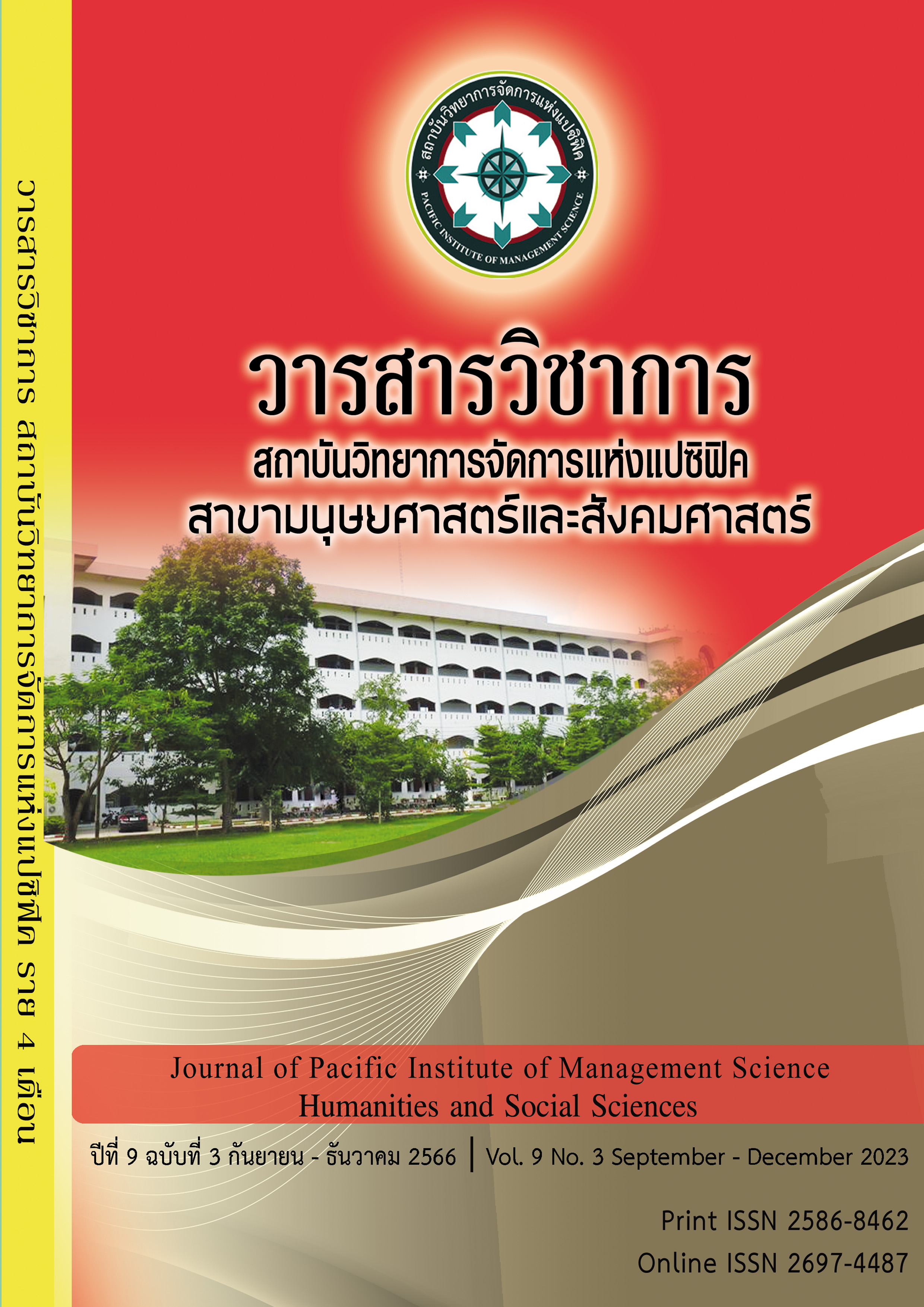The Validity Study of L2 Knowledge Teaching Management Model: From the English Modal Verbs’ Learning
Keywords:
applied talents, grammatical knowledge, pragmatic knowledgeAbstract
This Article aimed to study the English teachers’ practical application of the L2 (second language) teaching models, the valid relation between the language elements such as grammatical knowledge and pragmatic knowledge, grammatical form and grammatical meaning, and the constructs of pragmatical knowledge in order to get the validity of previous four L2 knowledge teaching models. And the article also aimed to study an effective L2 knowledge teaching model in the teaching management we should take in our college.
Faced the application-oriented universities’ reform in the field of education management in China, the valid training of L2 knowledge is also become an important factor to our applied talents training. English modal verbs, as a difficult and flexible teaching content, are a focus for the validity of L2 knowledge constantly. For that, we choose 517 Chinese sophomores and 20 professors in Taiyuan Institution of Technology randomly. Through two instruments of General Grammar Test and English Modal Verbs Test, we collect valid data and analysis data by Descriptive statistics and Content Analysis as questionnaire with an in-depth interview and SEM (Structural Equation Model). We find all the previous four models of L2 knowledge examined with respect to English modal verbs are generally adequate. We also have devised a more parsimonious and more explanatory model of L2 knowledge i.e., the Trait-only Model and further examined its validity, which can be applied into our English teaching management.
Keywords: applied talents; grammatical knowledge; pragmatic knowledge
References
Bachman, L. & A. Palmer. (1996). Language testing in Practice: Designing and Developing Useful Language Tests. Oxford: Oxford University Press.
Bai, X. J. (2015). A study on the Acquisition of English modal Verbs by Chinese students in English Corpora. Journal of Qiqihar University (Philosophy and Social Sciences Edition) (05), 118-121.
Brennan, V. M. (1993). Root and epistemic modal auxiliary verbs. Unpublished Ph. D. dissertation. Massachusetts: University of Massachusetts Amherst.
Chang, Zh. Q. (2019). A Study of modal verbs and modal sequences in Written English of Chinese learners. Journal of Lanzhou Institute of Technology. 26(2)
Cheng, I. (2002). Construct of models of language knowledge. Paper presented at Inaugural ECOLT (East Coast Organization of Language Testers) Conference, Washington, DC. Brown
Cheng, L. (2013). An Analysis of the nature of Second Language Acquisition from the perspective of Interactive Game Theory: A Case Study of modal verbs. Journal of Huaihai Institute of Technology (Humanities and Social Sciences Edition). (22), 48-51.
Cho, J. (2003). Relationship between grammatical knowledge and pragmatic knowledge/ability: The case of epistemic modality. Unpublished Ph. D. dissertation. New York: Columbia University Teachers College.
Dutra, D. P. (1998). The acquisition of English root modality by non-native speakers. Unpublished Ph. D. dissertation. Florida: University of Florida.
Enns, P. J. (1999). A Guillaumian contribution to a linguistic analysis of the modal will in contemporary English. Unpublished Ph. D. dissertation. Canada: University Laval.
Han, Y. (2011). A Study of L2 Knowledge Model and English Modal Verbs. Unpublished Master’s Thesis, Liaoning Normal University
Huang, Ch. H. (2019). An Exploration of English Teaching management model. Adolescent Diary (Educational Teaching Research). (05), 296-297.
Huang, M. & Li, Zh. (2021). College teaching management Innovation Strategy based on applied talent training. Journal of Jilin Agricultural Science and Technology University. 30 (06)
Kunz, L. A. (1999). English modals in American talk shows. Unpublished Ph.D. dissertation. United States, New York, Columbia University Teachers College.
Larsen-Freeman, D. (1991). Teaching grammar. In M. Celce-Murcia (Ed.), Teaching English as a second or foreign language. 279-296. Boston: Heinle & Heinle.
Larsen-Freeman, D. (1993). A nonhierarchical relationship between grammar and communication Part II: Theoretical and methodological considerations. In J. Alatis (Ed.) Georgetown University Round Table on Language and Linguistics 1992: Language, Communication, and Social Meaning. 155-165. Washington, DC: Georgetown University
Press.Purpura, J. E. (2004). Assessing Grammar. Cambridge: Cambridge University Press.
Purpura, J. E. (2014). Cognition and language assessment. Companion to Language Assessment.1452-1476
Rea-Dickins, P. (1991). What makes a grammar test communicative? In J. Alderson, & B. North (Eds.) Language testing in the 1990s: The communicative legacy. 112-131. London: MacMillan.
Spolsky, B. (2009). Language Management. Cambridge: Cambridge University Press.
Su, W. L. & L, X. H. (2016). Reflections on the Reform of College English Teaching Management in the mode of applied talent training. Journal of Baicheng Normal University. (12), 26-28.
Tong, X, Shirai Y. (2016). L2 acquisition of Mandarin zai and-le [J]. Chinese as a Second Language Research, (5): 1-25.
Wang, D. Y. (2022). Reform measures of English linguistics teaching in colleges and universities under the background of application-oriented talent training. English Square (28).
Wang, Y. & Cheng, J. Sh. (2015). An Analysis of the Use of Modal verb CAN by Chinese EFL Learners at different Levels: A corpus-based study. China light industry education. (03). 23-27.
Werner, T.A. (2003). Deducting the future and distinguishing the past: Temporal interpretation in modal sentences in English. Unpublished Ph.D. dissertation. United States: The State University of New Jersey.
Xi, J. P. (2018). On education development. Peking University symposium for teachers and students. http://jhsjk.people.cn/article/29961631
Xi, J. P. (2020). Holiday congratulations and sincere condolences to teachers and educators. http://www.xinhuanet.com/politics/2020-09/09/c_1126470281.htm
Ying, G.C. & Su, Y. J. (2022). Thinking and Exploration of Training Applied Talents in Colleges and Universities Comments on Innovation and Development Research and Practice of Training Applied Talents. China University Science & Technology (03).
Zeng, G. (1992). The English AUX‒with implications for teaching English to Chinese ESL learners. Unpublished Ph. D. dissertation. United States: Indiana University of Pennsylvania.
Zhang, L. (2012). A Study on English Modal Verb Acquisition by Chinese EFL Learners. Shanxi Education (Higher Education Edition) (10), 18-19.
Downloads
Published
Issue
Section
License
Copyright (c) 2023 Pacific Institute of Management Science

This work is licensed under a Creative Commons Attribution-NonCommercial-NoDerivatives 4.0 International License.
บทความที่ได้รับการตีพิมพ์เป็นลิขสิทธิ์ของ สถาบันวิทยาการจัดการแห่งแปซิฟิค
ข้อความที่ปรากฏในบทความแต่ละเรื่องในวารสารวิชาการเล่มนี้เป็นความคิดเห็นส่วนตัวของผู้เขียนแต่ละท่านไม่เกี่ยวข้องกับสถาบันวิทยาการจัดการแห่งแปซิฟิค และคณาจารย์ท่านอื่นๆในสถาบันฯ แต่อย่างใด ความรับผิดชอบองค์ประกอบทั้งหมดของบทความแต่ละเรื่องเป็นของผู้เขียนแต่ละท่าน หากมีความผิดพลาดใดๆ ผู้เขียนแต่ละท่านจะรับผิดชอบบทความของตนเองแต่ผู้เดียว







